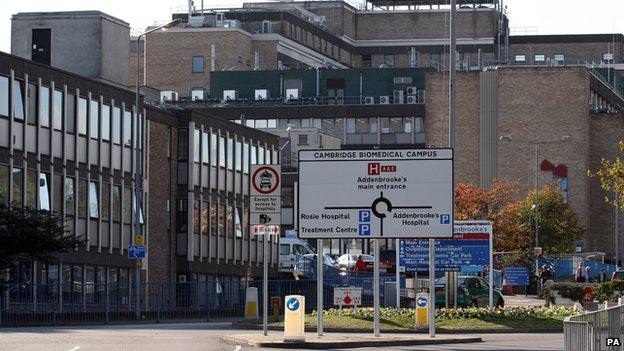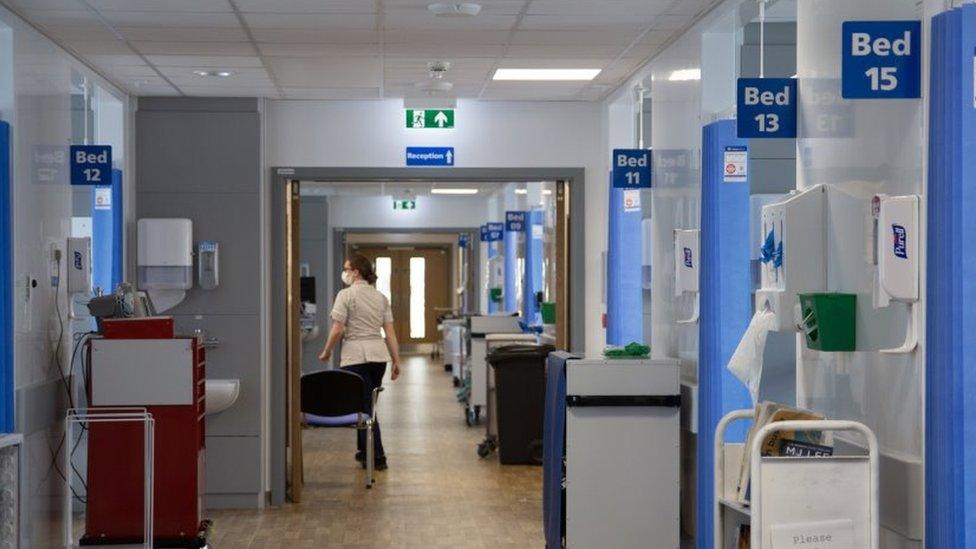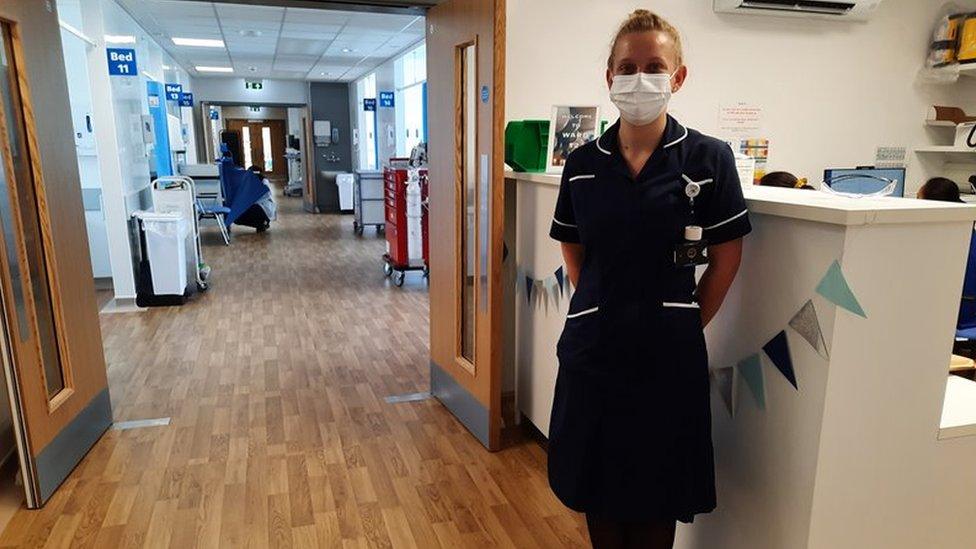Judge to decide if Covid patient should be allowed to die
- Published

The woman is being treated at Addenbrooke's Hospital
A judge has been asked to decide if a woman left brain damaged and paralysed from the neck down after contracting Covid-19 should be allowed to die.
Specialists treating the woman, who is in her 50s, at Addenbrooke's Hospital, Cambridge, say life-support treatment should end, but her family disagree.
The online hearing is taking place in the Court of Protection.
Mr Justice Hayden said it was the first "end-of-life decision in relation to Covid-19" he had been asked to make.
The woman, who cannot be identified in media reports, went to hospital on an emergency basis late in 2020 and was put on a ventilator.
One specialist told the hearing her family were in "daily torture" and her case had played out in "just the most horrific way".
Barrister Katie Gollop, representing hospital bosses, told the Court of Protection, where judges oversee hearings centred on adults who lack the mental capacity to make decisions, the case appeared to be "unique".
She said the woman was "almost entirely paralysed" and had "severe" cognitive impairment, adding: "There is nothing they can do to make any aspect of her condition better."
She said specialists thought the woman's future would be "slanted towards pain and discomfort".

New wards were built at Addenbrooke's to cope with the coronavirus pandemic
The woman is being represented by staff from the office of the Official Solicitor, who help vulnerable people embroiled in litigation.
Nageena Khalique, who is leading the woman's legal team, said the case was "exceptionally difficult".
She said Official Solicitor Sarah Castle had yet to reach a "final position" as to where the woman's best interests lay.
Ms Khalique said there was "no direct record" of what the woman would have wanted to happen, but added she had a "strong religious conviction".
She said the woman's family argued she "would not want to end her life in this way", as it would be "tantamount to suicide".Mr Justice Hayden, who is based in the Family Division of the High Court in London, said: "It is the most extreme example of its kind, and it is the first time in the whole of the pandemic that I have been asked to make an end-of-life decision in relation to Covid-19."
He said he would consider evidence relating to what the woman would have wanted as well as medical evidence.
The case continues.

Find BBC News: East of England on Facebook, external, Instagram, external and Twitter, external. If you have a story suggestion email eastofenglandnews@bbc.co.uk, external
Related topics
- Published7 June 2021
